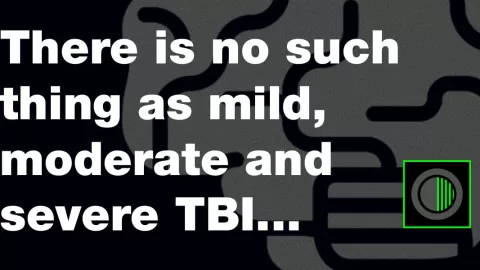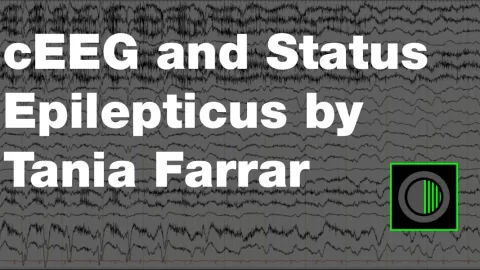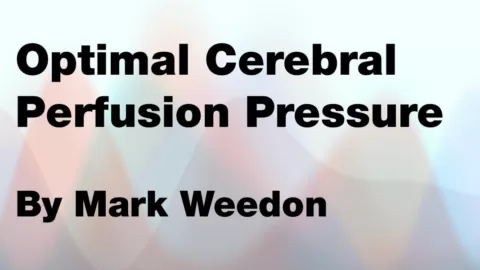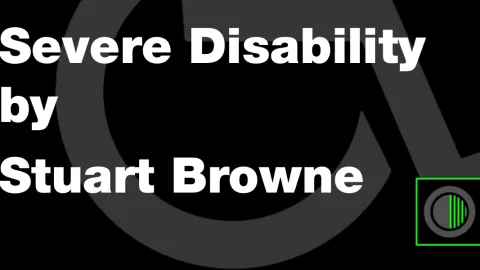Social Worker Victoria Whitfield and Bereavement councillor Louise Sayers discuss the power of words when health professionals are communicating topics around of death and serious injury with relatives and patients in critical care. They use role plays to bring theories to life.
This podcast was recorded at the Brain Symposium which took place in March 2023. Scroll down to read the transcript and access the presentation slides.
Slides
Transcript
The aim of this session to develop some useful phrases for your toolkit and use clinically.
Not just words we need to know, but the non-verbal aspects of communication is just as important.
Role play
“Hi I’m looking for my friend- 6F bed 9?”
“Oh I’m sorry, they’ve gone” / “gone upstairs to the ward?”
“No, gone to a better place” / “Gone to the Private?”
“No, We made them comfortable…” / “Oh good, is he in a private room?”
“No, they’ve departed” / “what, did you discharge him?”
“No, they’ve passed!” / “Passed what!?… Gas?”
… / “Just tell me what you mean?”
“They’re cactus!”
This role play shows us why language is so important.
79 ways of saying dead, just like the Eskimos have 50 words for snow.
But we know in order for patients and families to clearly understand what we’re saying, we need to use the right terminology- like death, dying, died.
Don’t assume you know how someone will receive or respond
Patients report huge variety of emotions when faced with serious news. shock anger, disbelief, “Not Coping”
There is no one right way to react to bad news
Vic’s example of supporting the girl going to see her death father and her screaming at him saying she was happy he was died.
Be mindful not to put words into other peoples mouths.
What we mean by levelling is Meet them where they’re at.
A well known study about the time a doctor spends with a patient depends on where they stand in the room. So the doctor who stood at the back of the room, compared to the doctor that sat beside the patient- the patient viewed the doctor who sat next to them to be in the room for a considerable amount of time longer, than the doctor who stood at the door. They also rated the doctors engagement and communication better.
Along with meeting the patient where they’re at is making sure we Speak in plain terminology ,not medical jargon, being clear; as you can tell by the role play- saying they’ve passed, isn’t clear.
Be honest, straightforward & caring
Check their understanding- “what’s your understanding of what’s happened so far? “is there anything you’d like me to clarify or go into more depth/detail?”
Remember the power imbalance patient and families can feel with doctors.
Humanise your connection with patients and families.
Connection- human interaction- ask about the patient, what do they do, like, interests, family, friends.
Ask “would you mind sharing a bit about Bob, so I can get to know him better?”
Emotional data is a reminder that when patients/families come into critical care, it’s highly stressful and this stress and emotions interfere with their ability to take on/retain information.
We call it an emotional bomb- so imagine a bomb has gone off- you’re not going to hear or remember much. So emotional data is reading the room.
Assessing how much information to cover at the one time/reading the room. Do you need to factor in silence? When we face conflict or we’re having a family meeting about eol/organ donation, we don’t say all the information in the one meeting, we tend to have multiple meetings, to ensure we’re not bombarding families with information.
A study in the Critical Care Medicine Journal look at conflict management strategies between Pall Care Specialists and Intensivists. They found Pall Care Specialists had better conflict resolution skills by engaged in more relationship-building statements compared to the Intensivists who engaged in more task-focussed statements. When we feel stuck, our default is/we tend to rely on the medicine/what we feel comfortable in, so it’s trying to remind ourselves of the benefit of relationship building statements.
During that time, checking how much information they have understood and how fast to proceed. “Can you tell me what you know so far?” “Would you like me to proceed?” impact/allow for silence
Vic spoke about connection- some families will want to talk about their loved one and some people will want to be left alone. Some times that’s hard to judge, but there is no hard in always asking.
Role play 1- silence and continuing to speak- Silence just as important as words here.
BAD ROLE PLAY:
Doctor: “Hi is it Sally?”“I’m sorry to inform you, your dad has been in an accident… he had a fall and we think he’s sustained a catastrophic brain injury… We need to take him right now for a scan and that will determine if he needs surgery or not… do you have any questions? Are you listening”
Jane: head in hands “Sorry, I’m so confused, what’s going on?”
TIMEOUT
Vic: how was that for you?
Lou: that felt horrible, I didn’t hear anything past dad had an accident and you kept talking. I needed a moment.
Vic: okay, shall we try it again?
GOOD ROLE PLAY:
With pauses.
Role Play 2: problem solving
Don’t try and fix or quieten emotions
Pay attention to your own worries & don’t act on them immediately
Be comfortable with displays of emotion
Don’t minimise the message
Convey to patient’s that they are safe to display emotion & give them time to do so
BAD ROLE PLAY:
Jane: “How am I going to live without my son?”
Doctor: “You’ll manage, with a bit of time, it will get easier”
Jane: “But what about my daughters, how are they going to live without their brother?”
Doctor: “You’ll be right, you’ve got your daughter”
Jane: “He’s only 17, he’s got so much life to live and he wanted to be a doctor”
Doctor: “I’ll get the social worker”.
TIMEOUT
Vic: How did that feel for you?
Lou: I felt like I wasn’t being listen to and you were just problem solving everything.
GOOD ROLE PLAY
“How am I going to live without my son?”
N Name the emotion. “I can see how devastated you are by this news”
U Understand the emotion. “I can only imagine how heartbreaking this must be for you”
R Respect (praise) the person. “It is very clear that you have been a wonderful mother to your son and that you love him dearly”
S Support the person. “I will be here, with my team, to support you through this awful time”
E Explore the emotion . “The thought of losing your son must be terrifying”
———–
This is another handy framework- the ASK TELL ASK method, or it even works as the statement/question method.
When we get asked the curly question or we feel stuck “Am I going to die/Are they going to die” If you’re not sure, be honest.
We don’t have to have all the answers or a response
————-
You have this as a handout- it was developed by the CEC- ‘Last Days of Life’.
It’s on the intranet, but it’s a really handy sheet to have at any time and it has really useful phrases on it.
For example:
“You mentioned you were concerned about… Can you tell me more about that?”
“I’m concerned that .. May not have much longer to live and while I don’t know exactly how long that might be, we do know that time is likely to be short”
“It sounds like this information is different from what you were expecting. It’s understandable you’d feel very upset by this news”.
It’s using the method of Curious Questioning which means you ask questions in a gentle manner. “Tell me a bit more about…” “I’m just wondering…”
————-
Words are really important when English is someone’s second language or speaking to different cultures and religions.
We’re very good at asking “does your loved one have any spiritual or religious needs?” But go beyond that/ go one step further “what does that look like?” “how can we support your needs” “Is there someone else who needs to be supporting you?”.
Often we face conflict when we don’t have a clear understanding of different cultural backgrounds, so not being afraid to ask and gaining a good understanding.
Engage in an interpreter- use small sentences and no medical jargon. Talk to the family still. It’s important to not use a family member to translate- it puts them in a very difficult position.
————–
VIC
Families role is to have hope until the end. It’s our role to be honest.
A great quote by CS Lewis.
When families come into ICU, they’re often in a state of shock.
When we look at it from a trauma informed care perspective, we don’t just look at someone’s behaviour- it allows us to look at what’s going on behind that and often it is fear.
So when someone is angry, it’s important to step back and think it’s probably fear.
————
VIC
Clinicians who have difficulty communicating with patients have worse job satisfaction and higher stress levels
Even very experienced clinicians find having serious conversations hard but communication is a skill that improves with practice









